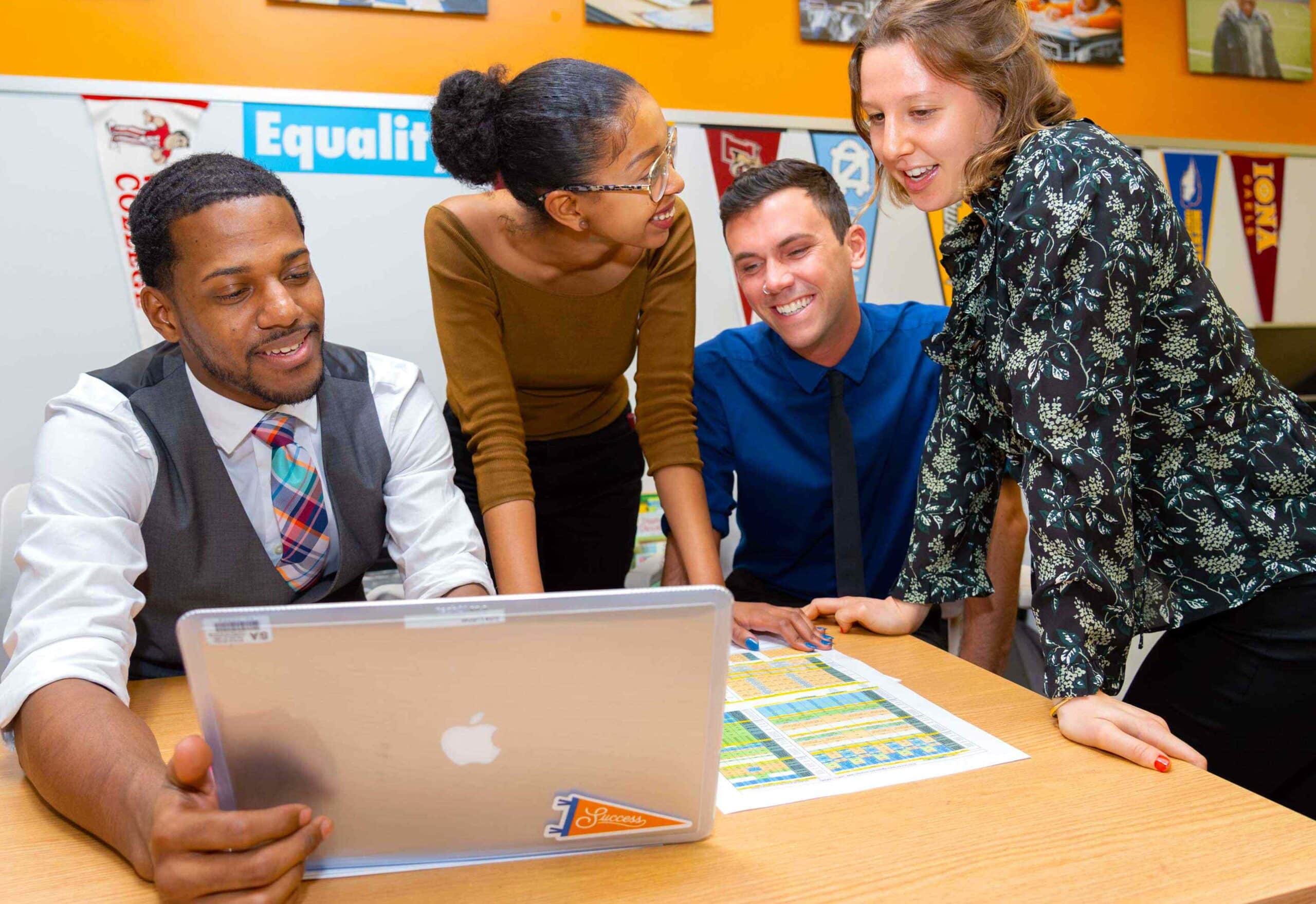We're sharing lessons learned from our Intellectual Prep Webinar and Elementary School Literacy workshop about reading planning that sets teachers up for purposeful instruction — and students for strong thinking.

As the school year unfolds, there are still many aspects of teaching and learning that are up in the air. How do we help students get reacquainted with in-person instruction? How do we make up for learning loss? How do we differentiate for students who are still remote? These are no easy questions to answer.
However, we know that no matter where and how we are engaging with our students, strong intellectual preparation for teaching is a key component of their success. As the Robertson Center prepared fall programming centered around the theme of “thinking,” we imagined that supporting our community in planning for purposeful lessons would be a good place to start. We kicked off the year with our Intellectual Preparation: Bringing Lessons to Life webinar showcasing ideas for reading planning and instruction that would elicit strong student thinking.
During the webinar, Sydney Diana, a longtime Success Academy fourth-grade teacher, shared guiding principles for purposeful read aloud prep. As Sydney walked through her planning process, she explained, “The first thing I do is come up with the big ideas we’re going to explore. Maybe we’re analyzing characters and their feelings, traits, or motivations. Maybe we’re digging into a moral we can take away from the story. It’s so important to name the ideas we’re going to focus on, so we narrow the purpose of the lesson. Most importantly, I pick a book that will ensure kids are excited to read.”
Sydney discussed other important aspects of reading planning, like crafting open-ended questions that elicit original thought and making time for turn-and-talks to allow deep thinking opportunities. She then invited the audience into her classroom to observe her read aloud lesson on Jacqueline Woodson’s profound short tale, Each Kindness. As the RC community observed the lesson, Sydney reflected, “Kids are more than capable of high-level thinking. I expect to have a conversation with my students about interesting things they’re noticing, almost like they’re adults. I plan opportunities for them to have unique insights and ask the types of questions that will foster those kinds of ideas.”
The RC continued this exploration of reading planning in our virtual elementary school literacy workshop. A group of educators from across the country joined us to dig deeper into bringing strong lessons to life. They first participated in a planning meeting just as our teachers do, then observed Success Academy Bushwick third-grade teachers as they prepared for and executed a read aloud lesson around Jan Brett’s classic folktale Town Mouse, Country Mouse.
Larissa Goldberg, third-grade teacher at SA Bushwick, reflected on how the planning meeting set her up for success when teaching the lesson. She shared with participants, “The planning meeting was impactful in guiding my instruction. It was helpful to discuss where my scholars were in terms of their thinking before the lesson, make connections to the questions I was planning to ask, and decide who I was going to call on during this read aloud and how that would support specific students and the class as a whole.” Her assistant principal, Allison Turck, reiterated that even though the teachers did their planning together, instruction ended up looking different in each classroom. Allison explained that, “in the planning meeting, we focused on kids understanding their own thinking to determine the main idea, but in execution, we realized that some students needed more work around identifying what was literally happening in the text. So in those cases, the teachers adjusted in the moment to make sure that was the focus. Only when students grasped what was happening in the story could they go on to name the lesson learned, and get meta about the thinking they did.”
How do you bring great lessons to life? This is another complex question. But we know that creating a purposeful plan focused on improving the quality of student thinking is a solid first step. Though we know a strong plan doesn’t always go to plan, it gives educators a meaningful roadmap and destination to drive toward. Student thinking, like our ever-changing world, is often unpredictable. However, creating a solid plan grounds teachers in their purpose and propels students toward becoming deeper and more critical thinkers.
—Jacqui Friedman, Program Manager, The Robertson Center
"*" indicates required fields
Access a wide array of articles, webinars, and more, designed to help you help children reach their potential.
NEWSLETTER
"*" indicates required fields
